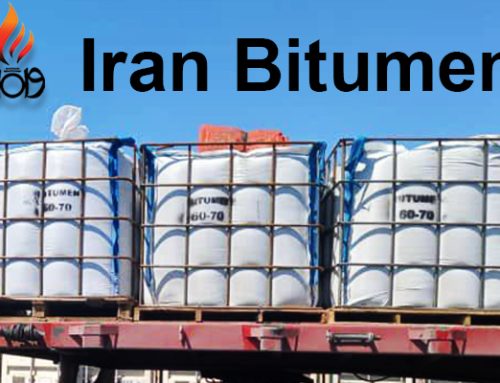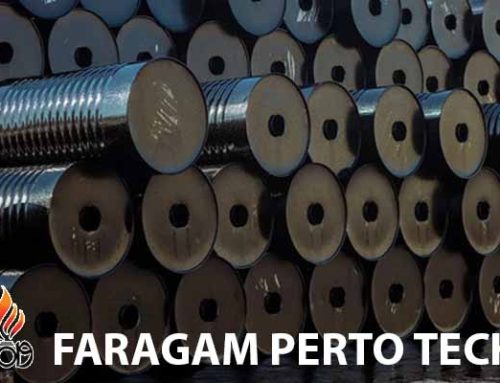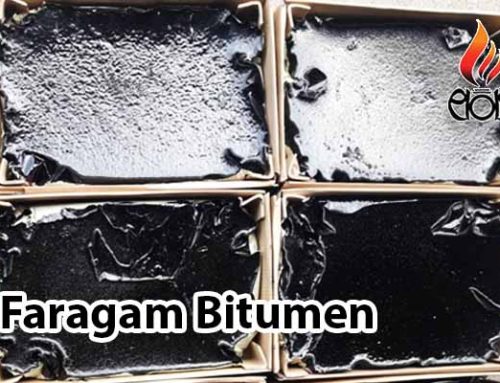
Bitumen Supplier | Manufacturer and Exporter
Reliable Bitumen Supplier | Manufacturer and Exporter
Oxidized bitumen, commonly referred to as blown bitumen, is a specialized form of bitumen created by blowing air through penetration-grade bitumen at elevated temperatures. This controlled oxidation process modifies the physical properties of the base material, resulting in a product with a higher softening point and lower penetration value.
As a result, oxidized bitumen becomes more durable, weather-resistant, and suitable for a wide range of industrial applications.
Production Process of Oxidized Bitumen
The oxidation process is a critical stage that defines the quality of the final bitumen grade. During this process, hot air is passed through heated bitumen under controlled conditions to achieve the desired chemical transformation.
Chemical Reactions and Material Transformation
When air is blown into the bitumen, oxidation reactions occur, leading to the formation of asphaltenes and resins. These components improve the material’s hardness and elasticity, giving oxidized bitumen its unique performance characteristics.
Process Control Parameters
Key factors influencing the oxidation process include:
- Temperature range: typically between 230°C and 300°C
- Airflow rate: determines the degree of oxidation
- Processing time: affects penetration and softening point values
Careful control of these parameters produces standardized grades like Oxidized Bitumen 85/25, 90/40, and 115/15, each suited to specific industrial uses.
Applications of Oxidized Bitumen in Industry
Oxidized bitumen is widely used across industrial and construction sectors where enhanced stability and adhesion are essential.
Construction and Infrastructure Uses
- In construction, oxidized bitumen serves as a key component in:
- Roofing and waterproofing membranes
- Asphalt joint fillers
- Protective surface coatings
- Industrial flooring and soundproofing systems
Electrical and Chemical Applications
Due to its excellent electrical insulation and chemical resistance, oxidized bitumen is also used in:
- Cable coating and electrical insulation
- Anti-corrosion coatings for pipelines and tanks
- Adhesives and sealants
Its consistent performance under heat and stress makes it an ideal material for long-term industrial operations.
Technical Advantages of Oxidized Bitumen
The unique molecular structure of oxidized bitumen provides multiple benefits over conventional grades. Performance and Durability
Property Advantage
Thermal Resistance Performs well in high-temperature environments
Aging Stability Resistant to oxidation and environmental degradation
Adhesion Quality Bonds effectively with metals, concrete, and fabrics
Flexibility Maintains stability under mechanical stress
Compliance and Testing
Every batch of oxidized bitumen undergoes quality testing according to ASTM D36, D5, and D946 standards to ensure reliable and consistent performance across international projects.
Global Supply and Quality Assurance
As a trusted oxidized bitumen supplier, Faragam Bitumen (Bitumen Supplier | Manufacturer and Exporter) focuses on providing materials that meet global industrial standards. The company ensures:
- Consistent physical and chemical properties
- Uniform softening point and penetration values
- Environmentally responsible production processes
Export Markets
Oxidized bitumen from Faragam Bitumen is supplied to markets across Asia, Africa, and Europe, supporting a range of infrastructure and industrial development projects.
Conclusion
Oxidized bitumen plays a vital role in the industrial and construction sectors due to its durability, heat resistance, and versatility. Selecting a qualified oxidized bitumen supplier guarantees not only product quality but also compliance with technical and environmental standards.
Through consistent production and quality assurance, companies like Faragam Bitumen contribute significantly to the global supply chain of high-performance bitumen products.
What licenses are required for bitumen for export?
In order to export bitumen in Iran, the exporter must obtain a bitumen export license from the Commodity Exchange Organization. To obtain this license, the exporter must submit the following documents:
- Business card
- Company registration certificate
- Bitumen standard certificate
- Bitumen purchase proforma invoice
- Bitumen sales contract
After the documents are reviewed by the Commodity Exchange Organization, if approved, a bitumen export license is issued.
In addition to the bitumen export license from the Commodity Exchange Organization, the exporter must also obtain other licenses. These licenses include:
- Customs clearance license
- Transport insurance
The customs clearance license is issued by Iranian Customs. To obtain this license, the exporter must issue a customs declaration.
Transport insurance is issued by an insurance company. The transport insurance policy protects bitumen against possible damage during transportation.



